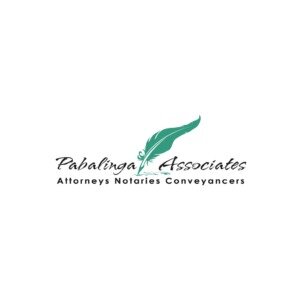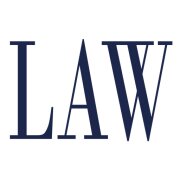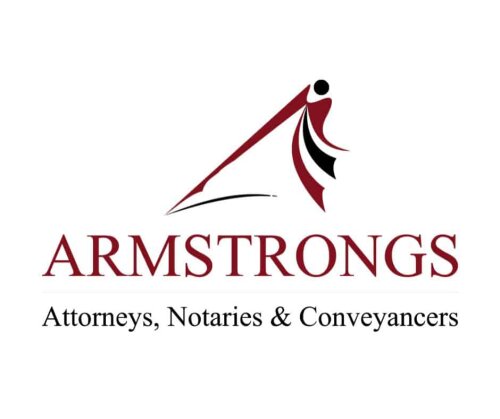Best Mining Law Lawyers in Botswana
Share your needs with us, get contacted by law firms.
Free. Takes 2 min.
Or refine your search by selecting a city:
List of the best lawyers in Botswana
About Mining Law in Botswana
Mining Law in Botswana governs the exploration, extraction, and management of the country’s mineral resources. Botswana is widely recognized for its rich mineral deposits, particularly diamonds, which play a significant role in the nation’s economy. Mining Law is structured to ensure minerals are extracted sustainably, responsibly, and with due regard for the rights of local communities and the environment. The legal framework in Botswana is primarily based on laws, regulations, and policies set forth to promote investment, ensure compliance with safety and environmental standards, and distribute mining benefits equitably.
Why You May Need a Lawyer
Engaging in mining activities in Botswana involves navigating complex legal requirements, making the expertise of a lawyer invaluable in several situations. Common scenarios where you may need a Mining Law specialist include:
- Applying for prospecting or mining licenses
- Negotiating mineral rights or mining agreements
- Ensuring compliance with environmental and safety standards
- Resolving disputes over land or mineral rights
- Managing regulatory investigations or enforcement actions
- Understanding tax and royalty obligations
- Structuring mergers, acquisitions, or joint ventures in the mining sector
- Protecting intellectual property, such as geological data
- Navigating cross-border transactions or foreign investment rules
- Advising on community engagement and benefit-sharing obligations
A skilled Mining Law lawyer can help you interpret legislation, negotiate favorable terms, and avoid costly errors or conflicts.
Local Laws Overview
Key aspects of Botswana’s local Mining Laws include:
- Mines and Minerals Act (Cap 66:01) - The principal legislation regulating the acquisition of mineral rights, issuance of licenses, and operational standards.
- Types of Licenses - Licenses issued include Prospecting Licenses, Retention Licenses, and Mining Licenses, each with distinct rights, obligations, and durations.
- Ownership - All mineral resources are vested in the Republic of Botswana, and any person or company must obtain rights from the state to prospect for or mine minerals.
- Environmental Regulations - Mining operations are subject to environmental assessments and monitoring under the Environmental Assessment Act and related regulations.
- Community Rights and Social Impact - Operators are required to engage with affected communities and address social impacts as part of their license conditions.
- Royalties and Taxes - Mining companies are required to pay royalties to the government, along with taxes that depend on the mineral being extracted and the size of operations.
- Foreign Ownership - Botswana allows foreign participation in mining but may impose certain local partnership or shareholding requirements depending on the mineral and project scale.
- Health and Safety - The law mandates strict workplace safety standards and employer responsibilities regarding mining-related health and safety.
Frequently Asked Questions
What licenses are required to start mining in Botswana?
You typically need a Prospecting License to explore for minerals and a Mining License to commercially extract minerals. Additional permits may be required for retention or special circumstances.
Who owns mineral resources in Botswana?
All mineral resources are owned by the state. Individuals or companies can only extract minerals by obtaining rights from the government.
How long does a mining license last?
Mining Licenses can be granted for a period of up to 25 years and may be renewed, subject to ongoing compliance with laws and license conditions.
Are there restrictions on foreign investment in mining?
Foreign investors are generally welcome, but certain projects may require partnerships with local entities or have limitations on foreign ownership. Compliance with national laws and regulations is mandatory.
What environmental requirements must be met?
Mining projects are subject to environmental assessments, monitoring, and management plans to mitigate negative impacts on the environment, in accordance with the Environmental Assessment Act.
How are royalties and taxes calculated?
Royalties and taxes vary depending on the mineral being mined and the scale of operations. Royalties are typically a percentage of sales value or net revenue, as determined by law.
Can mining licenses be transferred or sold?
Transfers of mining licenses require government consent. Each application is considered on a case-by-case basis to ensure continued compliance with the law and the interests of Botswana.
How are disputes over mining rights resolved?
Disputes can be resolved through negotiation, mediation, or formal legal proceedings. Some matters may go before the courts or specialized tribunals, depending on their nature.
What health and safety obligations do mining operators have?
Operators are responsible for maintaining safe working conditions, training workers, and reporting accidents. Compliance with health and safety laws is strictly enforced.
What happens if license conditions are breached?
Breaching license conditions can result in penalties, suspension, or revocation of licenses, as well as possible prosecution or civil action by affected parties or the government.
Additional Resources
If you need further information or assistance regarding Mining Law in Botswana, the following resources may be helpful:
- Ministry of Minerals and Energy - The primary regulatory body overseeing mining activities and licensing.
- Department of Mines - Responsible for issuing and monitoring compliance with mining licenses.
- Environmental Affairs Department - Regulates environmental impact assessments and ongoing environmental obligations for mining projects.
- Botswana Chamber of Mines - Represents the interests of mining companies and advocates for best practices.
- Legal Aid Botswana - Provides access to legal information and services for qualifying individuals.
- Professional law firms specializing in Mining Law and related fields.
Next Steps
If you are considering entering the mining industry in Botswana or have concerns about your mining rights or obligations, it is advisable to:
- Identify your specific legal issue or area of concern, such as licensing, compliance, or disputes.
- Gather relevant documents, records, and correspondence related to your mining activities or interests.
- Contact a qualified Mining Law lawyer who is registered to practice in Botswana and has experience with local mining regulations.
- Prepare a list of questions and objectives to discuss with your lawyer during the consultation.
- Follow up with regulatory bodies, such as the Department of Mines or Environmental Affairs Department, for specific guidance if needed.
By seeking timely professional legal advice and staying informed about Botswana’s Mining Laws and regulations, you can better protect your interests and navigate the complexities of the mining sector.
Lawzana helps you find the best lawyers and law firms in Botswana through a curated and pre-screened list of qualified legal professionals. Our platform offers rankings and detailed profiles of attorneys and law firms, allowing you to compare based on practice areas, including Mining Law, experience, and client feedback.
Each profile includes a description of the firm's areas of practice, client reviews, team members and partners, year of establishment, spoken languages, office locations, contact information, social media presence, and any published articles or resources. Most firms on our platform speak English and are experienced in both local and international legal matters.
Get a quote from top-rated law firms in Botswana — quickly, securely, and without unnecessary hassle.
Disclaimer:
The information provided on this page is for general informational purposes only and does not constitute legal advice. While we strive to ensure the accuracy and relevance of the content, legal information may change over time, and interpretations of the law can vary. You should always consult with a qualified legal professional for advice specific to your situation.
We disclaim all liability for actions taken or not taken based on the content of this page. If you believe any information is incorrect or outdated, please contact us, and we will review and update it where appropriate.
Browse mining law law firms by city in Botswana
Refine your search by selecting a city.














